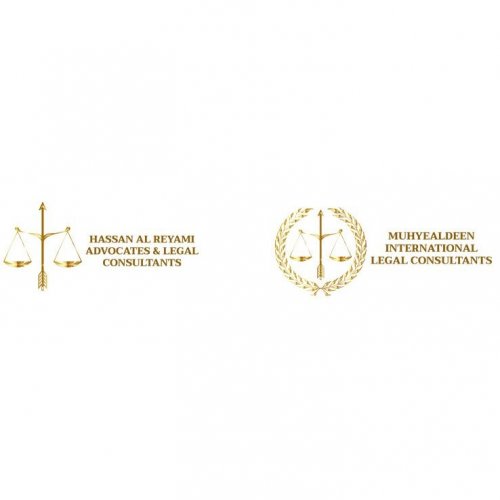Best Investment Lawyers in Abu Dhabi
Share your needs with us, get contacted by law firms.
Free. Takes 2 min.
List of the best lawyers in Abu Dhabi, United Arab Emirates

The Black Robe For Legal Consultancy & Debit Collection
1 hour Free ConsultationAbout Investment Law in Abu Dhabi, United Arab Emirates
The investment law in Abu Dhabi, a major business hub of the United Arab Emirates (UAE), is oriented to create a favorable environment for both local and foreign investors. Major changes in the investment law and regulation took place in 2018, with the introduction of the UAE Foreign Direct Investment Law, allowing up to 100% foreign ownership in certain onshore business sectors.
Why You May Need a Lawyer
Investment in Abu Dhabi, and by extension the UAE, involves navigating a unique set of local laws and regulations, fulfilling official paperwork, understanding complex contracts and finding resolutions to possible disputes. Having a lawyer can greatly facilitate this process. Lawyers provide valuable advice on the best legal structure for your business, help comply with regulatory requirements, negotiate and draft contracts, resolve potential disputes, and assist in overall risk management.
Local Laws Overview
The UAE Commercial Companies Law primarily governs investments. Recent amendments now permit 100% foreign ownership in certain sectors. However, specific approvals might be needed from the relevant authorities. The UAE Securities and Commodities Authority regulates securities and investment funds in the UAE. Practicing investment activities in Abu Dhabi also requires a license from the Abu Dhabi Department of Economic Development. Investments in certain industries like oil and gas, utilities, and defence may have specific additional regulations.
Frequently Asked Questions
1. Can foreign investors own 100% of any companies in the UAE?
Thanks to the new Foreign Direct Investment law, foreign investors can have 100% ownership in certain sectors. However, the list of eligible sectors is determined by the UAE cabinet and may vary.
2. Do I need a local partner to start a business in Abu Dhabi?
Previous requirements for a 51% local partner have been relaxed with new laws. However, some business activities might still require a local partner or sponsor. Legal advice should be sought for the specifics.
3. Are there restrictions on repatriating profits?
No, there are generally no restrictions on profit repatriation or capital repatriation in the UAE, making it an attractive destination for foreign investors.
4. What are the major investment laws I should be aware of?
The UAE Commercial Companies Law and UAE Foreign Direct Investment Law are the primary laws. Sector-specific laws like the UAE Securities and Commodities Authorities regulations also play a role.
5. What are the dispute resolution mechanisms?
The UAE has well-drafted commercial laws and offers efficient judicial systems. Additionally, the UAE is a signatory to the New York Convention, recognising and enforcing foreign arbitration awards.
Additional Resources
The Abu Dhabi Investment Authority and the Ministry of Economy provide authoritative resources on investment laws and guidelines. Further, ADIO (Abu Dhabi Investment Office) and the ADGM (Abu Dhabi Global Market) provide numerous resources for investors.
Next Steps
If you require legal assistance with investment in Abu Dhabi, it is recommended to contact a legal expert with proficiency in UAE investment laws. They can provide personalised advice and assist with specific requirements or issues pertaining to your investment.
Lawzana helps you find the best lawyers and law firms in Abu Dhabi through a curated and pre-screened list of qualified legal professionals. Our platform offers rankings and detailed profiles of attorneys and law firms, allowing you to compare based on practice areas, including Investment, experience, and client feedback.
Each profile includes a description of the firm's areas of practice, client reviews, team members and partners, year of establishment, spoken languages, office locations, contact information, social media presence, and any published articles or resources. Most firms on our platform speak English and are experienced in both local and international legal matters.
Get a quote from top-rated law firms in Abu Dhabi, United Arab Emirates — quickly, securely, and without unnecessary hassle.
Disclaimer:
The information provided on this page is for general informational purposes only and does not constitute legal advice. While we strive to ensure the accuracy and relevance of the content, legal information may change over time, and interpretations of the law can vary. You should always consult with a qualified legal professional for advice specific to your situation.
We disclaim all liability for actions taken or not taken based on the content of this page. If you believe any information is incorrect or outdated, please contact us, and we will review and update it where appropriate.
















